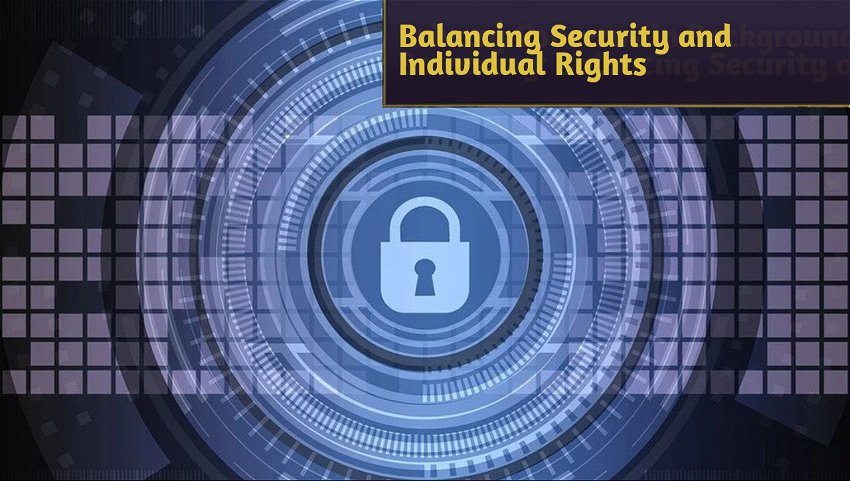In today's world, the issue of privacy in the workplace has become increasingly important. Employees have the right to keep certain aspects of their personal lives private, and employers must respect this boundary.
However, when it comes to hiring new employees, employers also have a responsibility to ensure the safety and security of their workforce. This delicate balance between privacy and security is particularly evident in the context of background screening.
In this article, we will explore the challenges and considerations surrounding workplace privacy rights, employers' obligations, and how to strike a balance between the two.
The Legal Framework: Protecting Workplace Privacy Rights
It is crucial to acknowledge that workplace privacy rights are protected by law. Employees cannot be fired based on their religious or political beliefs, among other protected characteristics.
The Fair Credit Reporting Act (FCRA) also mandates that employers adhere to privacy-minded guidelines when conducting background checks. These guidelines include obtaining written consent from the candidate and providing disclosure regarding the intent to conduct a background check.
If employers follow the FCRA regulations, the issue of privacy invasion becomes moot, as candidates who consent to the process effectively waive their right to privacy in relevant areas.
The Importance of Background Checks: Ensuring a Safe Work Environment
Thorough background check are vital for employers to make informed hiring decisions and maintain a safe work environment. They provide valuable information that allows employers to verify the truthfulness of a candidate's claims and identify any potential risks.
For instance, if a candidate has a criminal record that disqualifies them from a particular job or poses a threat to the workplace, employers have a legitimate reason to know this information. It is reasonable for employers to be cautious about hiring individuals with a history of criminal activity, as they have a responsibility to protect their employees, customers, and the public.
Moreover, background checks help employers evaluate the accuracy of a candidate's resume and determine whether their skills and qualifications align with the job requirements.
Verifying education and employment history ensures that employers make fair and informed decisions in the hiring process. Hiring someone based on false or exaggerated credentials can harm the company and its stakeholders.
Respecting Privacy: Transparent Processes and Restraint
While background checks play a crucial role in ensuring workplace safety, it is important to strike a balance that respects individuals' privacy rights. Employers should conduct background checks with transparency and obtain clear consent from candidates.
The release form and disclosure statement should be separate from the job application, ensuring that candidates understand the privacy implications and willingly waive their rights in relation to the background check process.
To maintain this balance, companies should review their background check policies regularly and ensure that they are sound and privacy-conscious. Employers should determine the extent of information needed to evaluate a candidate's qualifications and make hiring decisions.
Striving for consistency in the application of background check procedures ensures fairness and protects both the company's rights and the individual's privacy.
The Evolving Landscape: Social Media Background Checks and Legislative Movements
As technology advances, new challenges and considerations arise in the realm of background screening. Social media background checks, for example, have generated debate due to the private nature of individuals' online presence.
While employers may want to assess a candidate's character based on their social media activity, it is essential to separate personal and work-related matters. The relevance of social media information to job performance should be critically evaluated to strike a fair balance between privacy and employer due diligence.
Legislative movements have also contributed to the evolving landscape of background checks. One notable example is the "ban the box" movement, which restricts employers from asking about an individual's criminal history during the initial stages of the hiring process.
This movement aims to provide ex-offenders with a fair chance at employment and reduce the potential for discrimination based on past convictions. Employers must stay updated on such legislative changes to ensure compliance and adapt their hiring practices accordingly.
Privacy and Security: A Delicate Balance
In conclusion, privacy and security are intertwined aspects of the background screening process. While employers have a legitimate interest in conducting background checks to ensure a safe work environment and make informed hiring decisions, they must also respect individuals' privacy rights.
By adhering to legal requirements, maintaining transparency, and exercising restraint in the information sought, employers can strike a balance between privacy and security. Regular policy reviews and staying informed about legislative developments help companies navigate the complexities of background screening while upholding the rights of both employers and candidates.
Finding this delicate balance ultimately ensures fair and responsible hiring practices in the modern workplace.










— 评论 0
, 反应 1
成为第一个发表评论的人